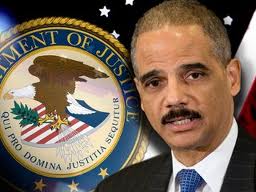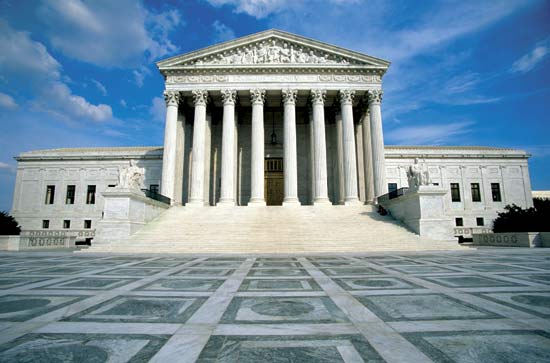Obama administration shuts down investigations into Bush-era torture
By Tom Carter, WSWS.ORG
As part of its cover-up of Bush administration war crimes, the Obama administration announced June 30 that it would shut down 99 investigations into deaths of prisoners in US custody during the so-called “war on terror,” leaving only two investigations with the potential to develop into criminal prosecutions.
The announcement underscores the fact that the anti-democratic policies developed during the presidency of George W. Bush continue unchallenged under President Barack Obama, who is doing everything in his power to keep the lid on the crimes of his predecessor.
Following the events of September 11, 2001, the Bush administration quickly and quietly erected a network of secret prisons and “black sites,” where opponents of US imperialism in the Middle East—as well as, in many cases, their friends, relatives and acquaintances—were jailed, tortured and murdered.
The Obama administration has continued and expanded the anti-democratic methods of the Bush administration, including the use of presidential assassination orders, indefinite detention without trial or charges, blocking court cases that threaten to reveal torture, domestic spying, prosecution of whistle-blowers, “rendition” of alleged terrorists to countries that practice torture, open violations of US and international law, including the War Powers Act in the case of Libya and the Geneva Conventions more generally, and the maintenance of illegal torture camps such as the infamous facility at Guantanamo Bay, Cuba.
The administration’s 101 investigations into torture deaths were a token measure to begin with. The investigations were initiated in 2009 and were designed to placate popular disgust with torture and other crimes carried out under Bush.
The 101 cases by no means include every death in US custody, and rather conveniently, no case in which the torture victim survived was selected for investigation. The investigations proceeded on the explicit basis that the infamous Bush Justice Department torture memos would not be challenged. Neither would the Bush-era policy of “enhanced interrogation” (a euphemism for torture). The only question that was to be pursued in the investigations was whether the Central Intelligence Agency operatives in the 101 selected death cases had violated Bush administration guidelines. Saddled with such limitations from the outset, the investigations could barely scratch the surface of government-sanctioned war crimes.
Echoing Obama’s mantra of “looking forward, not backward,” Attorney General Holder announced June 30 that 99 of the 101 cases did not warrant further investigation.
“I welcome the news that the broader inquiries are behind us,” remarked Leon Panetta, who left his post as CIA director July 1 to become secretary of defense. “We are now finally about to close this chapter of our agency’s history,” he added. Panetta was referring not to closing the chapter in which torture took place, but closing the chapter in which the agency’s practices were subjected to any form of official scrutiny.
While the two ongoing investigations remain officially secret, some details have been leaked to the press. One case involves the murder of a prisoner at Abu Ghraib prison in Iraq; the other case involves a murder at the secret CIA “Salt Pit” prison in Afghanistan. These two cases are remarkable both for the shocking brutality of the murders themselves as well as for the cold-blooded “business as usual” attitude of the CIA operatives involved.
Only the most depraved intellect could have designed the nightmarish “Salt Pit,” located northeast of the Kabul, Afghanistan airport, in which a young Afghan man named Gul Rahman was murdered on November 20, 2002.
Ghairat Baheer, a physician and son-in-law of an Afghan political figure associated with opposition to the US occupation, survived the Salt Pit and gave a chilling account to the press of the conditions surrounding Rahman’s death. Baheer and Rahman were old friends, and they were abducted by CIA operatives at around the same time in October, 2002. They were taken together to the Salt Pit for “enhanced interrogation.”
The CIA chose an abandoned brick factory for the installation. According to Baheer, an unimaginable stench permeated the Salt Pit, where prisoners were kept in windowless cells with metal buckets for latrines. Prisoners called it the “dark prison” because there were no windows and no electric lights.
Prisoners spent much of their time in total darkness. The CIA operatives running the prison wore full face masks and used medieval-type torches to make their way through the blackness. In many cells, prisoners were shackled naked to the rough walls with metal chains. No expense was spared to ensure maximum ghoulish terror.
Baheer said he was forced to sleep naked on a rough concrete floor next to his latrine bucket, when he was not chained to the wall of his cell. The cell was perpetually dark.
CIA operatives took turns repeatedly torturing the two men. Among the countless horrors, the two men would be tied to chairs, their torturers would sit on their stomachs, threaten to kill them, stage mock executions, beat them, or douse them with water and leave them to freeze naked in the unheated cells.
According to Baheer, Rahman was stubborn and defiant during the interrogations. The details of the events of the morning of November 20, 2002 are still unclear, but it is known that at some point Rahman’s captors stripped him naked below the waist, shackled his hands over his head, brutally beat him, and then doused him with water. Within hours, Rahman had died of hypothermia.
The Salt Pit prison was closed last year after it became the subject of international scrutiny and survivors began to describe to the press the hideous terrors that took place inside. In closing the prison, the CIA no doubt also had in mind the destruction of any physical evidence of the crimes that had been committed there.
The CIA appears overall to have regarded the Salt Pit as a successful operation. According to information leaked to the Associated Press, the CIA Kabul station chief has been promoted at least three times since Rahman’s death.
The second of the two ongoing investigations involves the murder of Manadel al-Jamadi at the hands of CIA operatives in the infamous Abu Ghraib prison in Iraq on November 4, 2003.
Jamadi, an alleged insurgent, was abducted violently from his house outside Baghdad in 2003 by Navy SEALs—the same feared and secretive military force that has been lauded in the bourgeois media for the murder of Osama Bin Laden. Apparently, Navy SEALs pursued Jamadi into his kitchen, where he made a ferocious last stand, toppling his stove onto one of the SEALs. In retaliation, the SEALs beat him savagely before turning him over to the CIA for interrogation at Abu Ghraib. Naturally, no trial or legal process of any kind was involved in this operation.
Forty-five minutes after he walked into Abu Ghraib, Jamadi was dead. It appears that once he arrived, Jamadi was subjected to further beatings and was chained to the wall, after which he lost consciousness and asphyxiated. Jamadi’s bruised and bloodstained corpse is featured in a number of the infamous Abu Ghraib photos, with grinning US military personnel standing over him and giving the “thumbs up.”
For as yet unexplained reasons, Jamadi’s corpse was packed in ice and stored in a shower in an attempt to prevent decomposition (military officials jokingly referred to him as “the Iceman”), and CIA officials mysteriously attached an intravenous tube to one of his arms before whisking the corpse out of the facility the following day. It appears that not long after Jamadi’s death a heated dispute broke out between the CIA and the Navy SEALs over which organization would take the blame. CIA operatives at Abu Ghraib rapidly moved to destroy all of the evidence of Jamadi’s death, including a bloodstained hood, and they scrubbed clean the death chamber.
While the Rahman and Jamadi murders constitute only the tip of the iceberg, they expose the day-to-day reality of CIA operations in occupied Iraq and Afghanistan. The CIA, tasked with discovering and silently “taking out” opponents of the occupations, operates outside the bounds of US and international law. When a federal court ordered the CIA to release 92 video tapes of “enhanced interrogations” in 2005, the CIA responded by destroying the tapes, a brazenly criminal maneuver for which no official to this day has been prosecuted.
The decision by the Obama administration to shut down virtually all of its investigations is a clear signal that the war crimes will continue. Indeed, in the bourgeois press, Holder’s announcement last Thursday was generally interpreted as a green light from the Obama administration to resume and escalate the practice of torture and murder of political opponents in the Middle East. The headline of an article in the Washington Post read, “Could Torture Make a Comeback?”
A deeply reactionary and chilling editorial in the Wall Street Journal, titled “Vindicating the CIA: Ending a Disgraceful Investigation,” went further. Gloating over Holder’s announcement, the editors declared, “The disgrace is that this probe was ever undertaken.”
The editors continued, “The probe has still done considerable harm by creating a culture of second-guessing and political retribution that CIA operatives must now consider as they try to protect against terror threats.” Translated from the euphemistic language of the so-called “war on terror” into plain English, this means that the intelligence agencies should be permitted to go about the grisly work of torturing and murdering their enemies in secret without any restrictions or oversight whatsoever.
The fact that this view enjoys wide support within the ruling class should be taken as a dire warning. How will this same ruling class respond to the development of a popular movement within the US that directly challenges its interests?
___________________________________________________________________________________
PROMOTIONAL MESSAGE
A TOOL IS USELESS IF IT’S NOT USED. Don’t just sit there…introduce a friend or relative to The Greanville Post and help us expand the reach of remedial ideas and information. If each of you brings merely ONE additional reader to the table, we will be able to double our circulation!
___________________________________________________________________________________________
_______________________________________________________________
If you liked this article, why not support The Greanville Post by buying our T-shirt, a mug, a mousepad, or any other item now in our store? That way you donate a few dollars and also get a nice gift. It’s a win-win formula!
Created By CrankyBeagle for The Greanville Post
This and many other items at our store. Stop by today!






